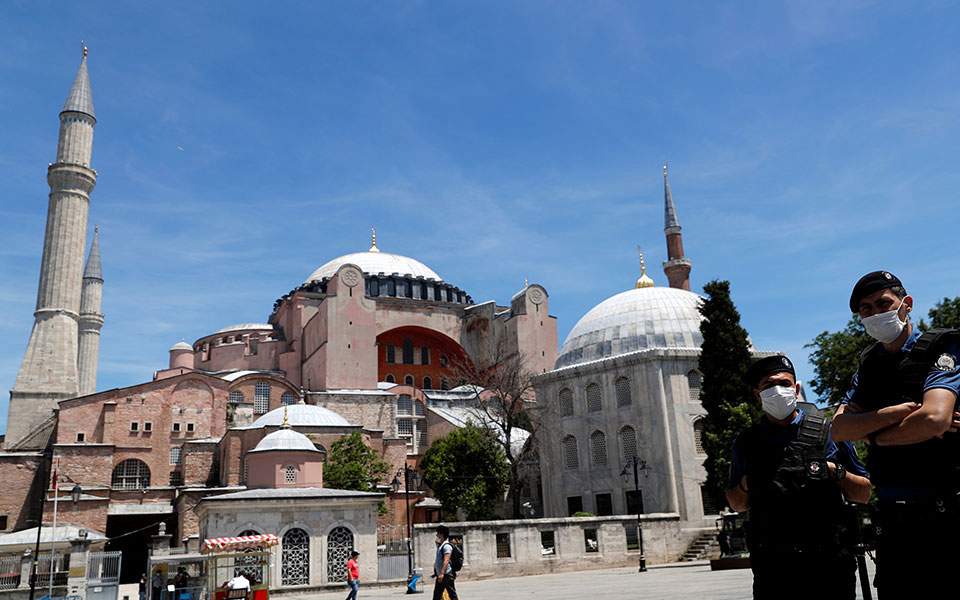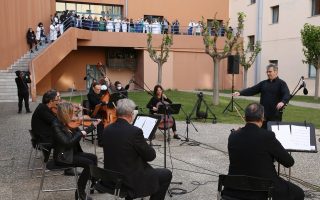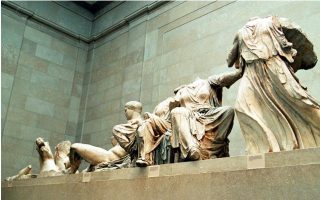Hagia Sophia: How European human rights laws are being violated

The conversion of Hagia Sophia into a mosque does not only offend its status as a cultural heritage site. It also violates international law. Besides the relevant UNESCO conventions for World Heritage Sites – which prohibit interventions on its listed sites that are carried out only with the approval of the relevant state – revoking the status of Hagia Sophia as a museum also clashes with the European Convention on Human Rights (ECHR).
The management of monuments of global cultural importance as if they were just another piece of state property, the complete disregard for the rules protecting such sites and the inevitable limitations in access to the site due to its conversion (even more, the awful thought of the covering of the church’s mosaics with lighting and “special technologies”), are in contradiction to European and international legal culture. Regarding the ECHR, the decision by the Turkish government to turn Hagia Sophia into a mosque violates two of its articles: First, Article 8 which protects “private life,” including the protection of the environment according to the legislation of the European Court of Human Rights. Second, Article 2 of the Additional Protocol 1 of the ECHR, which protects the right to education. And, it would constitute a grave oversight to assume that education is limited within classrooms and does not include the right of free access to sites of cultural heritage and historic importance.
The issue of the protection of cultural heritage through the ECHR is something that has already occupied the court during Ahunbay and Others vs Turkey (21-2-2019). In that case, five Turkish citizens two university professors and an archaeologist, a journalist and a lawyer) argued that the construction of a large hydroelectric dam would lead to the destruction of the distinguished archaeological site of Hasankeyf. According to the Strasbourg-based court, the increase in public awareness and the statutes of international law result in a joint European and global understanding on the protection of cultural heritage and the need to safeguard unobstructed access to it. However, the European Court of Human Rights accepted that the right to appeal in the court was “up until then” only given for minorities and indigenous populations, within the framework for the protection of their cultural traditions.
This decision by the ECHR was criticized – and rightly so – as cowardly. Within Turkey, it was criticized as having selective sensitivity and further considered that if the case regarded an archaeological site in Europe, the outcome would have been different. It must be noted, however, that the conversion of Hagia Sophia into a mosque constitutes an opportunity for the ECHR to reconsider its precedent (in fact the case also raises questions regarding the rights of the Christian minority in Turkey). The ECHR is constantly developing and reviewing its jurisprudence, and specifically in the Ahunbay decision it noted the temporary nature of its position on matters of this type.
Mainly, however, the ECHR cannot cower when faced with an offense on sites of cultural heritage if it wants to retain its image within the EU as a guardian of human rights. Because even if it is true that fundamental human rights seek, first and foremost, the protection of the weak and minorities, sometimes they must also safeguard the rights of the majority, especially the right of generations to come to unobstructed access to sites of global cultural heritage.
Spyros Vlachopoulos is a professor at the University of Athens Law School.





